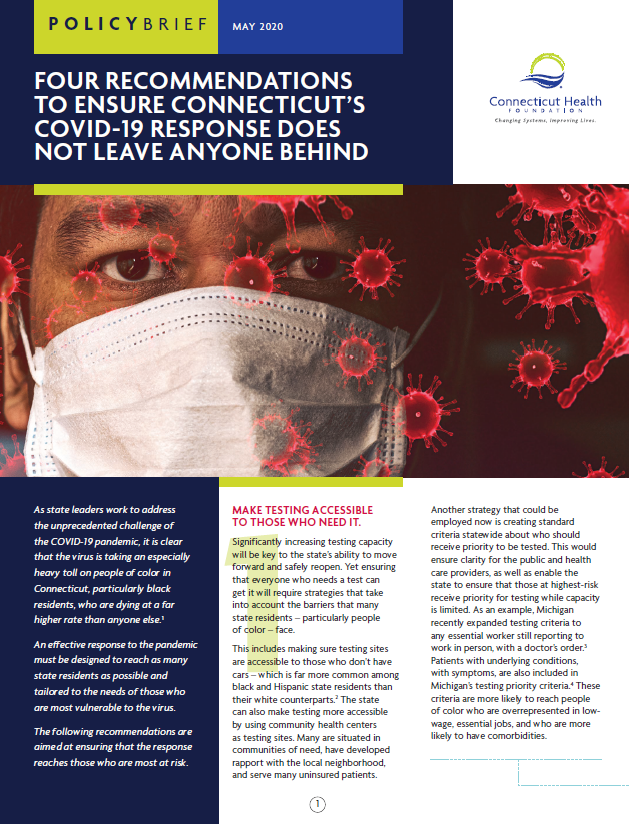As state leaders work to address the unprecedented challenge of the COVID-19 pandemic, it is clear that the virus is taking an especially heavy toll on people of color in Connecticut, particularly Black residents, who are dying at a far higher rate than anyone else. An effective response to the pandemic must be designed to reach as many state residents as possible and tailored to the needs of those who are most vulnerable to the virus. The following recommendations are aimed at ensuring that the response reaches those who are most at risk.
The recommendations and steps are:
- Ensure transportation is available to reach drive-through test sites and publicize its availability.
- Encourage or require test sites to accommodate patients who arrive on foot.
- Prioritize new test sites in accessible locations within neighborhoods, such as community health centers.
- Identify which groups should receive priority for tests and publicize the priorities.
- Include community health workers in contact tracing work.
- Encourage the use of community health workers to support patients and families. Consider allowing reimbursement through Medicaid.
- Include community health workers in COVID-19 response and recovery planning work.
- Work with community health workers to develop and deliver important messaging about the pandemic, resources, and recovery efforts.
- Secure dorm rooms and hotel rooms for people who need to isolate away from home. If the demand is overwhelming, consider criteria to determine who receives priority.
- Continue to pursue plans to provide food delivery to those who must isolate because of COVID-19 exposure and plans to allow SNAP beneficiaries to order groceries online.
- Report on the racial and ethnic breakdown of the full population being tested, not just those who test positive.
- Communicate clearly and transparently about testing capacity and limitations, as well as criteria for who can get a test.
- Create a way to collect feedback from people who have concerns about testing or treatment.
Authors: Arielle Levin Becker and Geralynn McGee, JD
